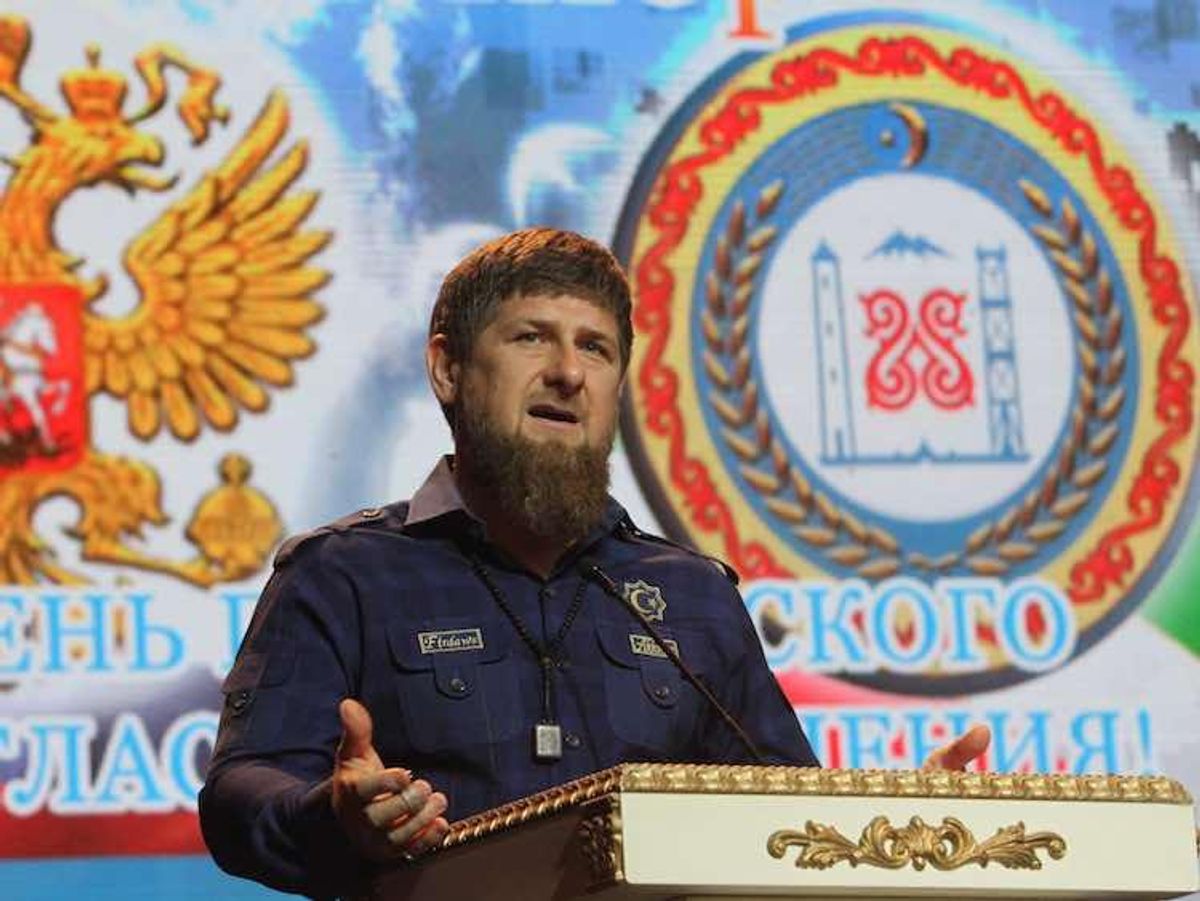Authorities in the Russian-controlled republic of Chechnya have been rounding up and arresting gay men, with more than 100 detained and at least three killed, The New York Times reports.
"The men were detained 'in connection with their nontraditional sexual orientation, or suspicion of such,'" the Times reports, quoting the Russian opposition newspaper Novaya Gazeta. Stories of the actions against gay men had been circulating among human rights activists for some time, the Times notes, with the Russian paper now providing confirmation.
The arrests began after the group GayRussia.ru applied to hold Pride parades in four locations in the North Caucasus region, which includes Chechnya. It had not applied for a permit in Chechnya, but in neighboring areas. The group did not expect to receive approvals -- public demonstrations of "nontraditional sexual orientation" are illegal in Russia -- but was "collecting the inevitable denials, in order to build a case about gay rights and freedom of assembly with the European Court of Human Rights," the Times reports.
The North Caucasus is heavily Muslim, and Russian President Vladimir Putin, seeking to pacify Muslim rebels, "has empowered local leaders to press agendas of traditional Muslim values," with gay people particularly targeted, according to the Times.
It is risky to be out in the region, so authorities had sought out closeted gay men, partly by pretending to look for dates on social networking sites. Gay men have now begun deleting their social networking accounts, while some have posted harrowing stories -- one of a 16-year-old boy who disappeared from a Chechnyan village and was beaten to death, with his bones returned in a bag.
Chechnyan leaders denied the accounts of arrests and killings, and indeed, denied that gay people even exist in the region. "You cannot arrest or repress people who just don't exist in the republic," Alvi Karimov, a spokesman for Chechnyan leader Ramzan Kadyrov told the Interfax news agency, according to the Times.
"If such people existed in Chechnya, law enforcement would not have to worry about them, as their own relatives would have sent them to where they could never return," Karimov added.














































































